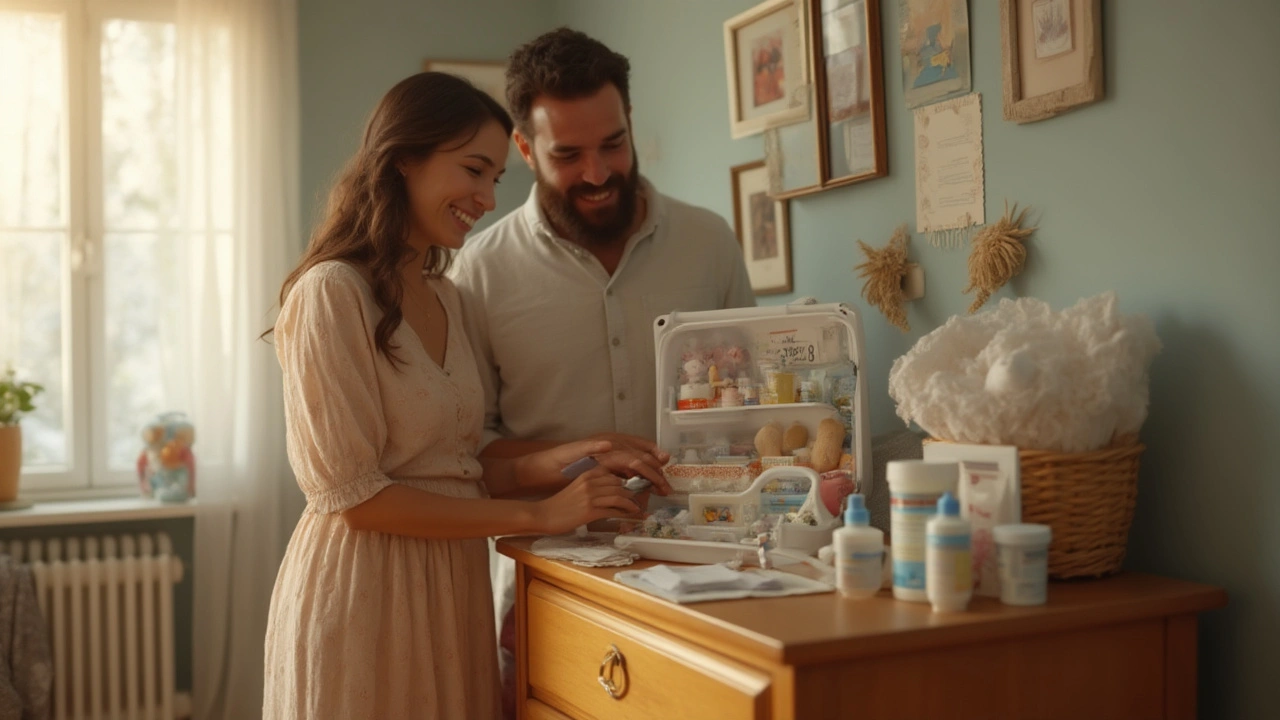Newborn Care: Simple Advice for Everyday Parents
First time holding your newborn? It’s equal parts joy and confusion. Real talk: babies don’t come with a manual, but there’s loads you can do to make those first weeks smoother for both of you.
One thing that always trips people up is sleep—or the total lack of it. Newborns sleep anywhere from 14 to 17 hours a day, but it won’t feel like it. Their sleep comes in small stretches, and you’ll notice every nap is different. Instead of stressing about a schedule, watch for baby’s sleep cues like yawning, fussing, or rubbing eyes. Swaddling helps babies feel secure, but you want them to stay on their back to lower SIDS risk. No fluffy blankets or toys in the crib, ever.
Feeding is another huge worry. Whether you choose formula or breastfeeding, the job is the same: make sure your baby is eating every 2-3 hours. Newborns have tiny stomachs, so small, frequent meals are normal. Worried if the baby is getting enough? Count wet diapers—six or more a day usually means good hydration. Trust your gut, but if something feels seriously off, call your pediatrician right away.
Bath time isn’t daily at first. Two or three sponge baths a week is enough until the umbilical stump falls off. Pick a warm room, gentle soap, and a soft cloth. Babies love routines, so take it slow and keep everything handy—no running to the other room for a forgotten towel.
Every new parent wonders about handling: Are they too fragile? Actually, newborns are sturdier than they look, but always support the head and neck. When you pick up or lay down your baby, move gently. Resist bouncing or rough handling, even if you’re desperate to calm a crying fit.
Crying is how babies talk, but figuring out what they need isn’t always clear. Go through the basics: hunger, a dirty diaper, gas, or over-tiredness. Sometimes, they just want to be held. If you’re ever overwhelmed, set the baby in a safe place and take a few deep breaths. Your well-being matters too.
Health checks? Look for yellowing in the skin or eyes (possible jaundice), any trouble breathing, or refusal to eat. A runny nose or sneeze now and then is normal, but breathing problems or a high fever are signals to get help fast.
Above all, remember there’s no perfect parent. Everyone messes up. Your baby needs you more than anything else, flaws and all. Reach out for help—from friends, family, or reliable parenting resources like Unified Dating Universe. You’re not alone on this wild ride.

Newborn First Aid Kit Essentials: What Every Parent Should Have
Get the inside scoop on must-have newborn first aid kit essentials. Learn what every parent should keep handy—from thermometers to nail clippers—for peace of mind.
Read More